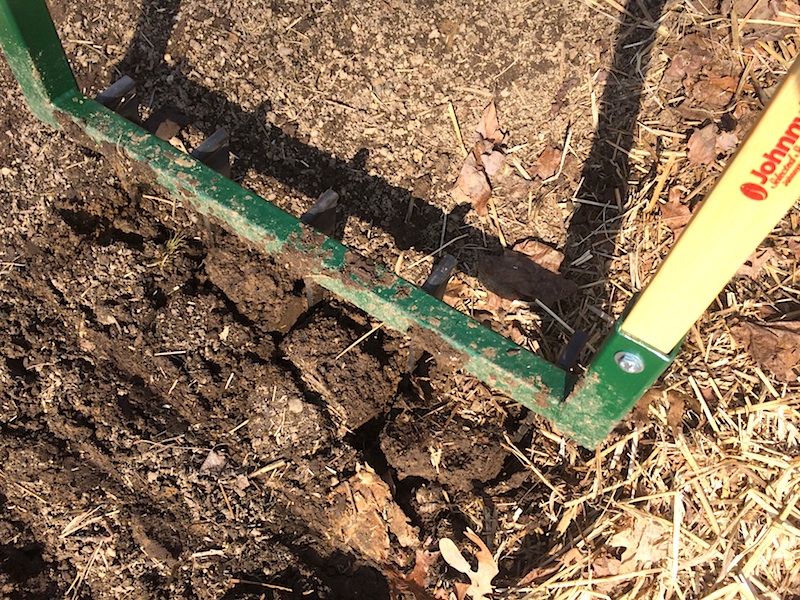
This past weekend, we got quite a bit — though not quite as much as I wanted — accomplished (And isn’t that *always* the case?). Curt did a big clean up of the gravel driveway to the farm, raking, blowing, weeding (Already! I know, right?), we got the grapevines planted (more on that later), and I prepped two new beds for direct sowing.
The prepping was easier than most years because we were super-smart when closing up for winter. For overwintering, we always mulch the Victory Farms beds with straw at the end of every fall. However, we made sure to first put down a layer of fall leaves. This protects the soil and the worms, giving moisture and warmth as the ground — but not the weather — starts to warm up. So, I raked off the straw, putting it in a fourth compost bin of sorts (It will be straw only/brown only), and then I removed the leaves. What lay beneath? Black gold, baby. The soil, despite a completely abusive winter, was rich, wormy, and not at all compacted.
Even lacking the compaction, though, you have to turn or agitate the beds in some way. In years past, we would use a spading fork and painstakingly turn the entire bed, going down more than a foot. This was a) backbreaking work, b) time consuming, and c) wildly disruptive to the hundreds of worms that live in our beds. I recently discovered that we’ve been doing it wrong, and that you don’t want to constantly disrupt the profile of your soil multiple times each season. So, I went out and got a new toy, er, I mean, tool: Johnny’s 520 Hardpan Broadfork.
…
